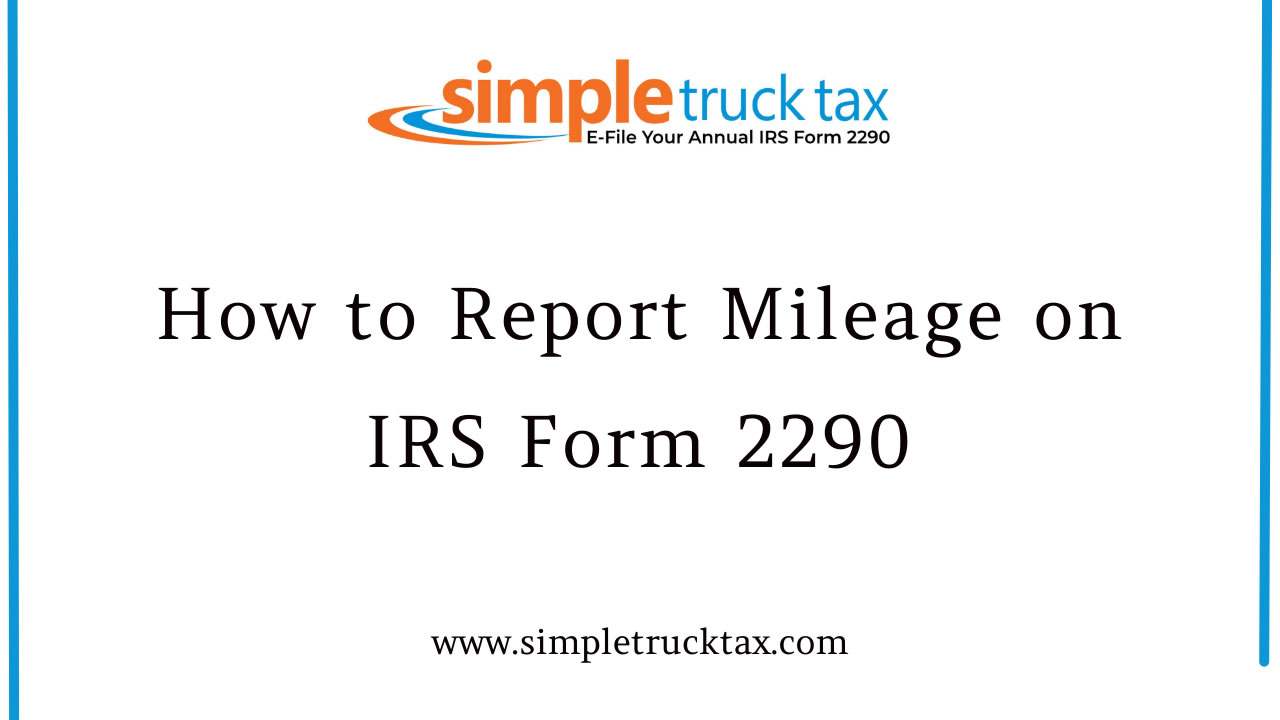
How to Report Mileage on IRS Form 2290
If you operate a heavy highway vehicle with a taxable gross weight of 55,000 pounds or more, IRS Form 2290 is a required filing. One of the most important details to file that form is to provide information on the mileage of your truck.
Unused compliance with IRS guidelines is the result of knowing how to report the mileage correctly whether you are a novice in the business or have been in the business for a reasonable amount of time.
What is IRS Form 2290?
IRS Form 2290 is the document used by taxpayers to fulfill their heavy vehicle use tax (HVUT) obligations. The tax is levied annually on the owners of vehicles with a taxable gross weight of 55,000 pounds or more that are operated on the public highways.
The calculation of the tax sum owed is executed by the weight of the vehicle and the distance it has traveled during the tax period. If the vehicle is expected to be driven no more than 5,000 miles (or 7,500 miles for agricultural vehicles), you might be eligible for a tax suspension.
Understanding Mileage Use Limits
As far as the taxation of vehicles and suspension of the same is concerned, the mileage figure is central. The IRS has put a cap of 5,000 miles (7,500 miles for farmers) on the mileage that can be driven in a tax period for the vehicle not to be taxable. If your vehicle remains within this limit, it is known as a "suspended vehicle" and there is no need for tax payment.
Nevertheless, you are obliged to submit Form 2290 and specify the status of the vehicle by marking the correct box at Part II, Line 7 of the form.
How to Accurately Report Mileage
To claim mileage on Form 2290, you have to maintain a proper record of your vehicle's odometer reading or utilize electronic logging devices (ELDs). In the process of forming, the vehicle will be suspended if the mileage limit is not exceeded.
If by any chance, later in the year, mileage exceeds the limit, you need to file Form 2290 (the amended one) and pay the tax for the remaining period. Make sure to check your results and the documents provided so that you don't attract the tax authorities' attention or incur the penalties.
Tips for Staying Compliant
To make sure you are following the rules, reliable tracking of the logged miles, timeliness of the submission (usually by August 31 for the first month of use in July), and keeping all your submitted forms and Schedule 1 is a must. The best solution for the ones who are reporting 25 or more vehicles is e-filing which is not only secure but also quick.
The last group is most commonly satisfied with e-filing because it is convenient even if they are reporting fewer vehicles. If there is some ambiguity regarding the mileage reporting, a well-versed tax professional can be contacted or a trustworthy IRS approved e-file provider can be used.
Through these measures, you can not only confidently claim mileage but also on Form 2290 but also save yourself from unnecessary tax payments or legal disputes. Keep a clear mind, stay informed and drive your vehicle smoothly without any hindrances.